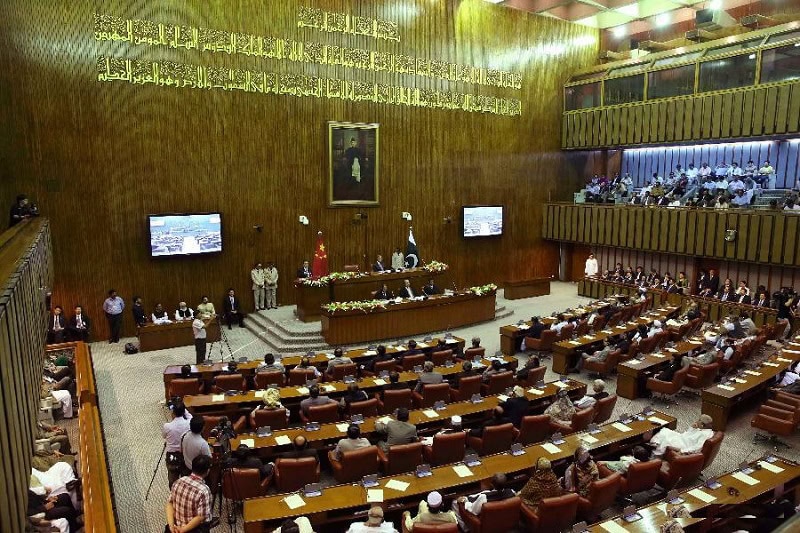Islamabad: The National Accountability (Second Amendment) Act 2022 sailed through Senate as well despite the opposition – Pakistan Tehreek Insaf (PTI) – registered massive protest against the motion.
The bill was presented by the Minister of State for Law and Justice Shahadat Awan in the upper house of the parliament on Thursday. He moved the motion seeking suspension of rules to introduce the NAB amendment bill.
The opposition opposed this request, alleging that the government wanted to save its leadership by clipping the NAB’s wings.
The government rejected these allegations stressing that the amendments were being made in the greater public interest.
Senator Mushtaq Ahmad of Jamat Islami stated that a criminal statute could not have a retroactive impact. He claimed that if there were a change, NAB would no longer be able to take action against people who use amnesty programmes to whiten their black money.
“Mafias would have a backdoor through this,” Mushtaq Ahmad said.
Senator Mushtaq proposed three amendments to the bill, which were rejected with a majority by the coalition government.
Senator Shibli Faraz of the PTI stated that the bill’s goal was to turn the NAB into a “toothless organisation,” noting that it was being administered by a government that was under investigation for severe corruption accusations and had 60% of its cabinet members out on bail.
He asserted that there was no moral reason for the government to introduce legislation that will directly benefit its members.
He said, “We will fight this tooth and nail.
He declared that in corruption cases involving less than Rs. 500 million, the NAB lacks the authority to pursue them.
He said, “If this is the measure of corruption, let’s free everyone who committed less wrongdoing.”
NAB amendment bill 2022
Under the new bill – National Accountability (Second Amendment) Bill, 2022 – corruption cases amounting to less than Rs 500 million will not come under the purview of the NAB.
Read: NAB wings clipped as it won’t be able to probe cases under Rs 500 million
It also proposed that only the federal government, and not President, will have the right to power to appoint judges of accountability courts. The federal government would discuss with the Chief Justice of the relevant High Court while appointing an accountability judge.
62ea640085e82_891It also said that a judge should not ordinarily be removed or transferred by the Federal Government from his office before the completion of his term, “except after consultation with the Chief Justice of the High Court concerned”.
Per the bill, the service tenure of NAB’s prosecutor general can be extended by three years.
“Notwithstanding anything contained in this section, an accused shall be tried for an offence under this Ordinance [National Accountability Ordinance, 1999] in the Court in whose territorial jurisdiction the offence is alleged to have been committed: Provided that NAB shall file the reference after the investigation is fully completed, which shall be treated as the final reference, and no supplementary reference shall be filed thereafter unless investigation reveals new facts and with the permission of the Court,” amendment to section 16 read.










